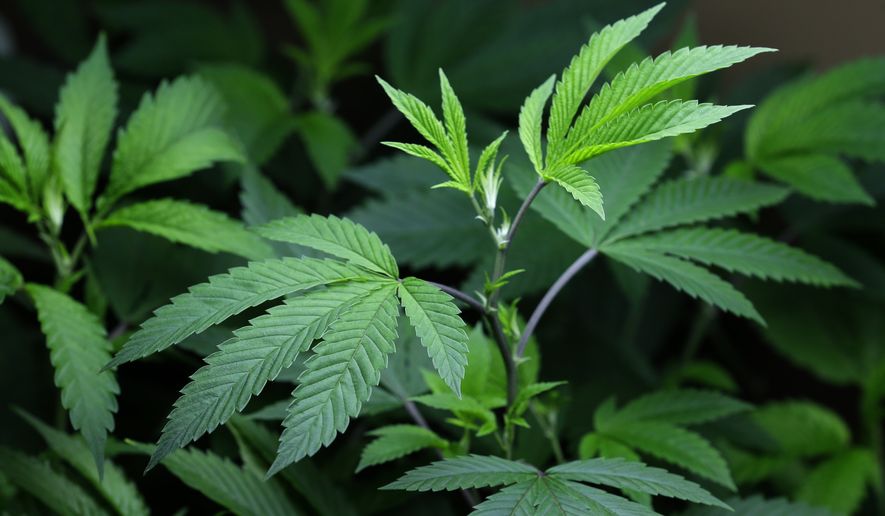OPINION:
The most deceitful provisions in the $1.1 trillion spending bill passed by the lame-duck Congress are pinata provisions tucked in with the substantial. The Democrats were trying to get while the getting was good.
But not every pinata provision in the spending bill is bad. The Republicans attached a rider to the measure expressing disapproval of the attempt to legalize recreational marijuana. It’s a signal of more to come. District of Columbia voters approved legalizing small quantities of pot for recreational purposes on Nov. 4, by a margin of 2-to-1. But under Article I, Section 8 of the Constitution, the District proposes and Congress disposes. After the Republican-controlled House sent a clear anti-pot message, potheads and their friends marched to Capitol Hill for a sit-in in the offices of Senate Majority Leader Harry Reid to register their displeasure.
“The best thing that could happen here, the only good thing,” D.C. Council member David Grosso told The Washington Post, “is that people around the country may finally realize that the will of the people in D.C. [is not respected].”
“It’s totally disturbing,” said Adam Eidinger, who led the D.C. legalization effort. “It’s entirely undemocratic.” He calls recreational marijuana “the No. 1 civil rights issue of our day” and fumes that Congress violates direct democracy and the will of the people. The claim that Congress has no business overturning the will of the voters of the District is totally refuted by the fact that the District, unlike the states, is a creature of Congress.
Many of the liberals who decry what they call congressional short-circuiting of democracy routinely applaud when liberal federal judges short-circuit the will of the people in respect to, for example, gay marriage. Over the past 18 months, more than a third of the states have watched state laws or state constitutional amendments defining marriage as the union of one man and one woman invalidated by the federal courts that ignored the clear language of the Ninth and 10th Amendments to the Constitution, reserving powers not explicitly granted to the federal government to the states and to the people.
Nor is the large margin by which D.C. voters approved the pot referendum the point. Mississippi, for example, voted by 86 percent to ban gay marriage in 2004, and this was invalidated by a federal judge without a peep of liberal protest. (The ruling has been stayed on appeal.)
“I’m accepting concepts for a #DCdemocracy Statue to be erected near Capitol next year,” Mr. Eidinger wrote Monday in a Twitter message that was retweeted by the D.C. Cannabis Campaign and posted on its website. Another tweet, from the D.C. Cannabis Campaign, took aim at Rep. Andy Harris of Maryland, a Republican who proposed the rider language blocking pot legalization in the District. The tweet asked: “Can businesses actually refuse service to Andy Harris?” (The answer is no.)
Mr. Harris reasonably proposes that the District, which has no shortage of problems, should wait to see how pot legalization shakes out in Colorado and Washington state before it follows. That’s merely democratic, and sage advice besides. The jury of public opinion is still out in those states.
“The takeaway is that if Congress passes this amendment, it will have taken the position that it is way too early to proceed with legalization in the District of Columbia,” Mr. Harris says, “and I think that most people think we should wait for more scientific evidence from states that have attempted legalization.”




Please read our comment policy before commenting.